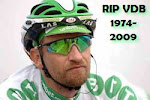 The Vuelta a Cuba's chequered history
The Vuelta a Cuba's chequered history - reprinted from my 2005 cyclingnews.com diary, A Cuban Odyssey (Part 2)
Before the start of the Vuelta, a book chronicling the event's history was released to the Cuban public. 'La Vuelta es Cuba', by Joel García León, is an incredibly rich text that includes complete rosters for almost every team that has ridden the Vuelta and stage results from each year. I think you'll be surprised by the quality of past participants, though hopefully you'll gain a sense of the race's history and prestige.
1977 Peace Race winner Avo Pikkus (USSR), considered at the time to be one of the best amateurs in the world, rode with Sergei Sukhoruchenkov in the 1978 edition of the Vuelta. Sukhoruchenkov won the overall, Pikkus took sixth and a Cuban named Ricardo Salazar was 10th. In 1980, Sukhoruchenkov won the road race at the Moscow Olympics.
In the 1983 event, the Soviet Union was represented by a team that included Ivan Ivanov and Pietr Ugrumov while East Germany sent Uwe Raab and Olaf Ludwig as part of their squad. Raab won one stage, though Ludwig didn't factor into the overall or the daily results. Olaf Jentzsch of East Germany won the overall in his third attempt, having first come to Cuba in 1981 with Ludwig on the German team.
Raab was back in 1984 and he took two stages, but he was only one of several Europeans in Cuba who would go on to illustrious professional careers. The start list included both Jens Heppner (East Germany) and Djamolodine Abdujaparov (USSR), and from Mexico came Raul Alcala (though as part of the "B," not "A" team!). Abdu' also known as the "Tashkent Express" from Uzbekistan, won two stages including the final dash into Havana (which in 1984 was a 168km trek covered in 4:56:26).
In 1985, Jan Schur joined the East German team alongside Heppner, and Abdu' got a ride on the Soviet "B" team while Ugrumov headlined USSR "A." He would finish 4th overall behind teammate Alexander Zinoviev, six-time Vuelta a Cuba winner Eduardo Alonso (Cuba) and Hardy Groger from East Germany. Alonso, who coached his compatriot Pedro Pablo Perez to two of his three Vuelta victories (2001 and 2002), now works as a coach in the Dominican Republic. After Cuba lost the Vuelta two years running (2002 to Filippo Pozzato and 2003 to my then-teammate Todd Herriott), Alonso was unceremoniously shipped out of the country to make way for a new director who could hopefully help secure a win for the home country. Ouch. Anyway, Abdu' won in Holguin and Cárdenas and Ricardo Salazar won the stage that finished with the Gran Piedra, the most epic climb in Cuba.
The Italians first came to Cuba in 1986, and Alberto Elli was on the team that would finish 10th overall. The Soviet Ivan Romanov won four stages, the regularity classification and the points competition, and Salazar - the Cuban Pantani - soared like an eagle to win the KOM classification.
1987 saw the arrival of a fresh group of Europeans, including Udo Bolts and Christian Henn from West Germany plus Eros Poli, Mario Scirra and Mario Cipollini from Italy! Salazar won the KOM again, though the best finish Cipollini could muster was second on the 180km 8th stage from Santa Clara to Cárdenas.
I couldn't find a team list from 1988, but I do have the results from the regularity classification: First - Dimitri Konyshev, second - Abdu'. In 1989, Jan Svorda (Czechoslovakia) won two stages in a race that saw only 69 of 189 starters complete the entire distance. Later that year the Berlin Wall would collapse, setting in motion the chain of events that would eventually result in Cuba's losing an annual subsidy from the Soviet Union that had amounted to tens of millions of dollars per day.
The Cuban Cycling Federation was still able to organize the Vuelta in 1990 and great riders such as Rolf Aldag and Kai Hundertmarck (West Germany), Vassili Davidenko (USSR), Uwe Peschel (East Germany) and Jan Svorda and Pavel Padrnos (Czechoslovakia) joined 142 other riders in Baracoa for the start. Aldag won the regularity classification, and Cuban Gil Cordoves, who still races in Venezuela, finished first in the points competition, three points ahead of Svorda!
Because of Cuba's economic collapse upon the loss of Soviet subsidies, 10 years would pass before the next edition of the Vuelta was held in 2000. Pedro Pablo won, taking the 2001 race as well. In 2002, my first year riding the Vuelta, Filippo Pozzato (Mapei-Italy) won and Bernhard Eisel (also of Mapei) finished second, with PPP third. Besides Pozzato and Eisel, Mapei's team's included Aurelien Clerc, Graziano Gasparre, Frederick Willems and Gianpolo Cheula. I had five top-6 stage finishes and fell in love the Vuelta, despite having to abandon after the 10th stage to Cárdenas because of illness (Todd Herriott had already quit, and we were roommates. I was feverish and hallucinating, thought I was dying, mistook Todd for my brother and told him to burn all of my personal papers and financial documents).
Despite the difficult conditions that sometimes characterize the Vuelta a Cuba, it is an incredible event with real history. The Vuelta has a great tradition, and while Cuba might be an international pariah right now because of its system of government, its cyclists are still cyclists just like any of us and its national tour has hosted some of the best riders in the world. Any US riders interested in racing the Vuelta in 2006 should feel free to email me, because I'm planning to organize two teams - USA 1 and 2 - to try to repeat Todd Herriott's 2003 victory.






No comments:
Post a Comment
Pappillon welcomes your comments and encourages your participation. Comments may, however, be moderated.